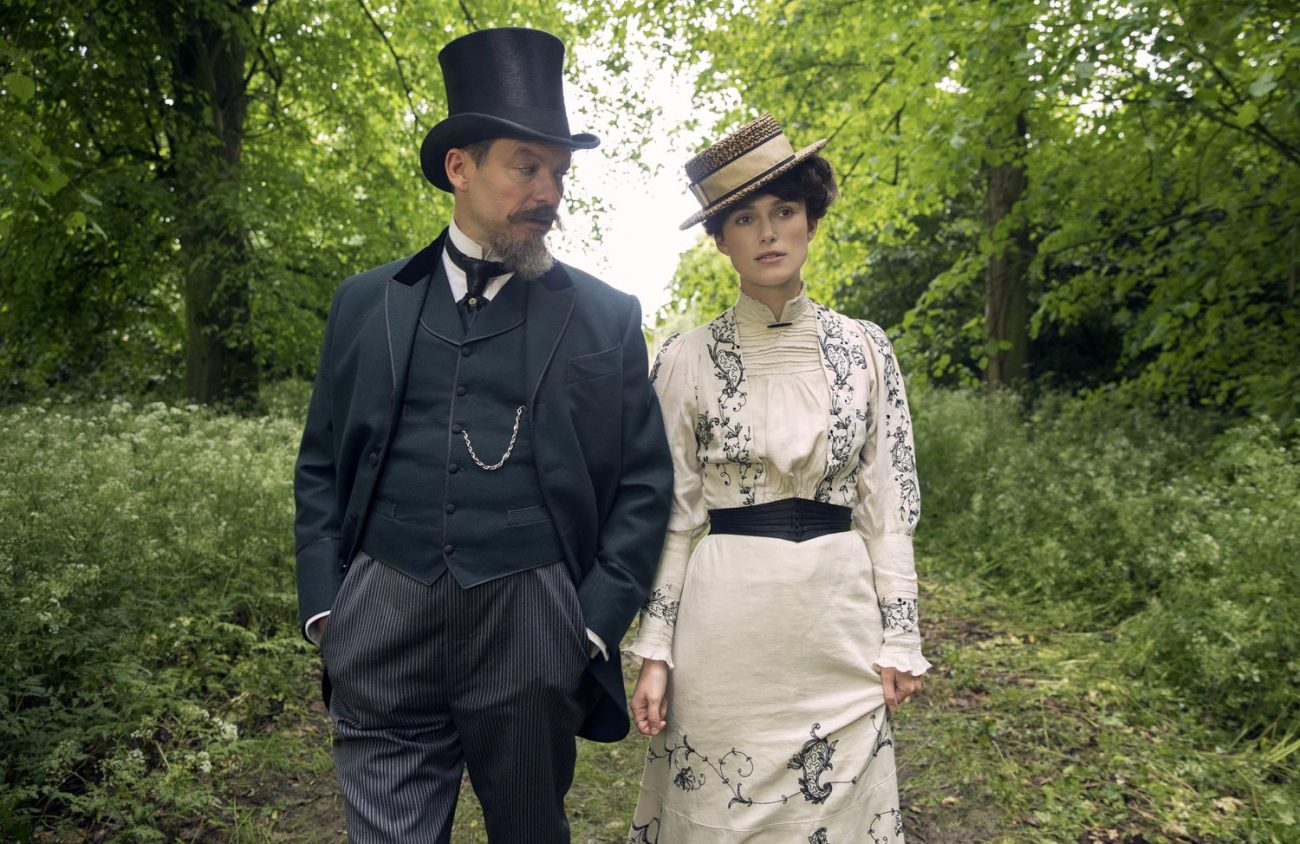It is always sunny in Colette. Wash Westmoreland’s new biopic of the early years of the French author exists in the kind of period-piece world where the light is always buttery, everything is always clean, and rarely is a hair out of place — unless it’s been shaken there purposely, so that a gentle hand might have the pleasure of smoothing it back down.
Colette stars Keira Knightley in demure-going-on-steely mode. The best word for her performance might be “able” — she deftly moves Colette from young woman in love to grown woman coming into her own, but it always feels as though there’s a layer between the film and the complex emotions of Colette’s existence.
At first Gabrielle-Sidonie Colette is a coltish young woman, in love with Henri Gauthier-Villars (Dominic West), better known by his pen name, Willy. After they’re married and she joins him in Paris, she has to learn to perform herself — to be both authentic and larger than life, as the guests in the salons Willy attends expect.
He leads a gaggle of well-cast writers whose work is all published under his name. Willy is the brand. When things get financially tight, Colette — she eventually shortens her name — writes a book for him. When it’s published, with Willy’s name on it, it explodes.
What is missing in Colette is the depth of emotion that her writing elicits: It’s full of sensory pleasures, promise and longing. Reading is a solitary thing; a book feels different to everyone.
Perhaps you’ll find what you expect from the life of Colette in this tidy, gentle version of her life. What I found was an overabundance of montages, far too much Willy (West is all charisma, but Willy is still a domineering bore), and too many of the complicated parts skipped over. (The score is at times confusingly peppy.)
The movie is always — metaphorically, but sometimes literally — skipping from the sly smile over drinks straight to the bedroom, leaving out the lush conversation, the teasing and drawing-out, the establishing of relationships. All the edges are filed off, leaving a shining bauble that just does the one thing: It shines and looks pretty (especially the impeccable costumes), even when it means to elicit a deeper response. It’s remarkable how safe the film feels, given its transgressive subject.
Colette grew into her world, reclaimed her work from Willy’s grasp, and lived a fascinating life. Knightley stretches into the role as the film goes on, but her reserve remains, even as she saunters confidently across a stage.
Colette was bisexual; she had relationships with men and women, and those are depicted here with respect and love. (As Missy, Denise Gough has a sparkling energy with Knightley; they interact like a couple who truly broaden each other’s lives.)
The particular dance of her relationships while she is still with Willy explores the expectations of heterosexuality, what men view as challenge, and what it took — what it takes — to extract yourself from patriarchal ways of thinking and living. It’s beautiful to experience a story that depicts its protagonist’s queer relationships as a source of strength. I just wish that story had gotten a stronger film.
